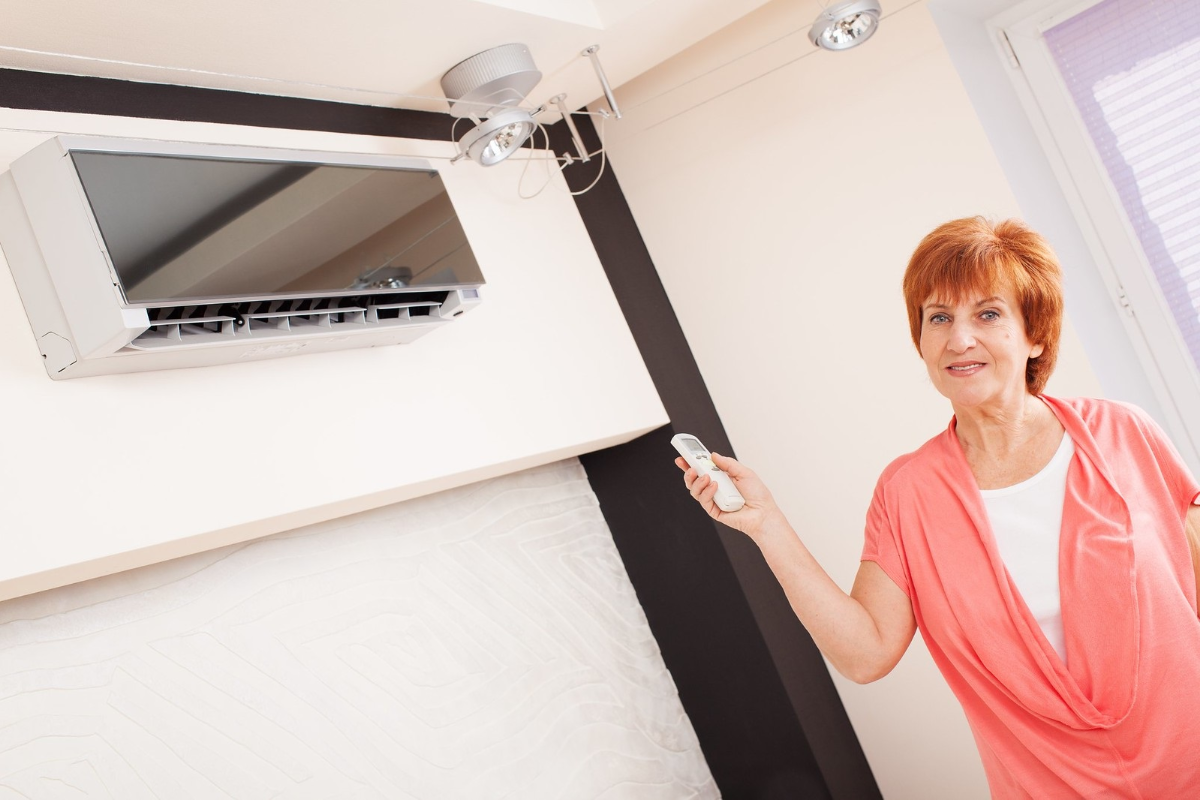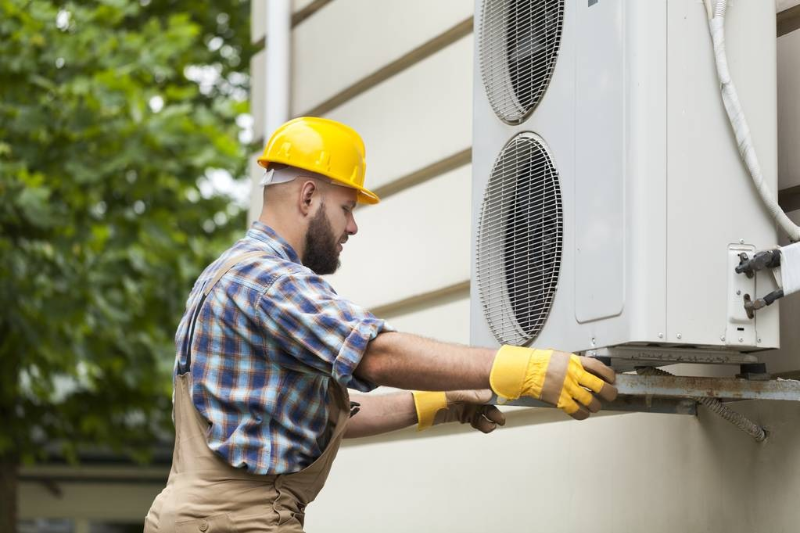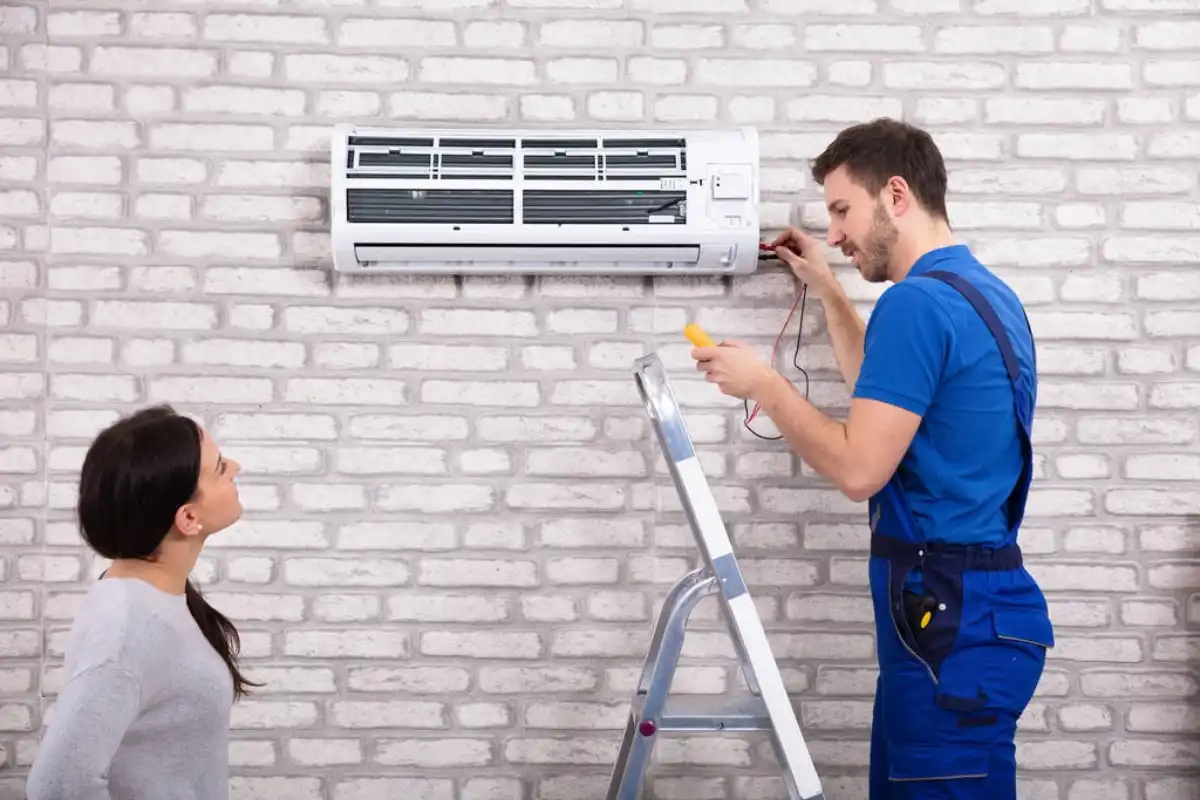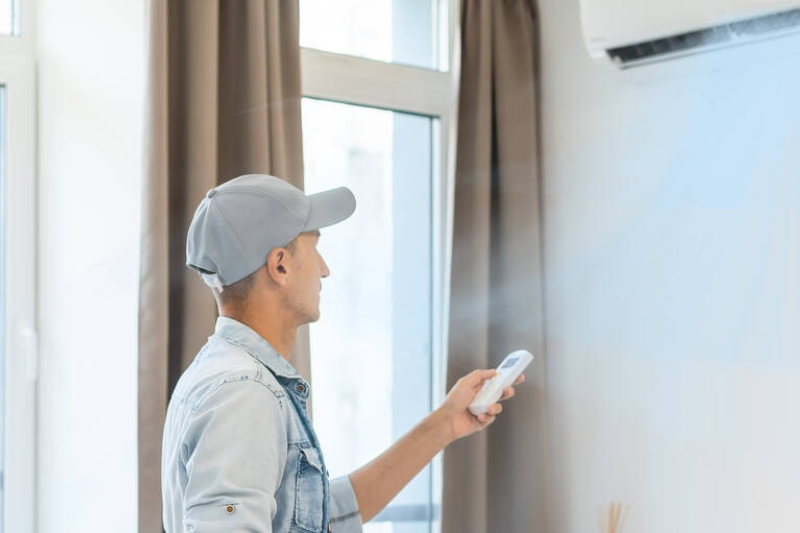Table Of Contents
Balancing staying cool and managing energy costs is a common challenge during extreme weather. The quest for a “good temperature” for air conditioning is more than just a personal preference; it’s about efficiency, cost, and environmental impact.
By considering factors like humidity, health, and your household’s specific needs, you can identify a temperature setting that offers both comfort and sustainability. This guide aims to help you find that perfect balance, ensuring your residential property remains a haven of comfort regardless of the season. Let’s dive in!
Ideal air conditioning temperatures

Recommendations from energy experts
Experts suggest setting your air conditioner to 78°F (25°C) during the day in summer and 68°F (20°C) during winter for optimal energy efficiency. These settings balance comfort and energy use, saving you money on your utility bills without sacrificing personal comfort. Adhering to these guidelines can also reduce wear and tear on your air conditioning system.
Health considerations and temperature
The right temperature setting is crucial for your health. Icy settings can lead to respiratory issues and worsen conditions like arthritis, while overly warm environments can cause dehydration and heat exhaustion. Maintaining a moderate temperature fosters a healthier living environment, especially for vulnerable populations like the elderly and young children.
Environmental impact of temperature settings
Choosing environmentally friendly temperature settings reduces your carbon footprint. Energy consumption increases with every degree lower in summer or higher in winter. By selecting a temperature that balances comfort with environmental responsibility, you contribute to global efforts to combat climate change.
The balance between comfort and energy savings
Finding the right temperature setting is a personal journey. What feels comfortable can vary significantly from one person to another, influenced by factors like clothing, humidity, and personal preference. Experimentation is vital to discovering the setting that best suits your household’s needs while keeping energy consumption in check.
Seasonal adjustments and their importance
Seasonal adjustments to your thermostat settings can further optimise energy use and comfort. For example, using fans in the summer and layering clothing in the winter can enhance your convenience without relying solely on your HVAC system. These adjustments contribute to energy efficiency and personal comfort throughout the year.
Factors affecting your ideal temperature setting

Climate and geographic location
Your ideal air conditioning temperature can depend heavily on where you live. In hot, humid climates, a lower temperature might be necessary for comfort due to the moisture in the air, which makes it feel warmer than it is. Conversely, in dry climates, a slightly higher temperature is more comfortable.
Humidity levels and their impact
Humidity plays a significant role in how temperatures are perceived. High humidity can make the air feel hotter, while low humidity can make it feel more relaxed. Managing indoor humidity levels through dehumidifiers or humidifiers can help create a more cosy atmosphere, allowing you to adjust your thermostat settings accordingly.
Individual and family preferences
Comfort is subjective, and what’s ideal for one person may not be for another. It’s essential to consider the preferences and needs of all household members, including any health issues that might affect how temperatures are perceived. Communication and compromise are vital to finding a setting that satisfies everyone.
The design and insulation of your home
How your home is designed and insulated directly affects its air conditioning needs. Homes with poor insulation or large windows that let in a lot of sunlight require cooler temperatures. Improving your home’s insulation can help maintain your desired temperature more efficiently, reducing the need for lower settings in the summer.
The efficiency of your air conditioning system
An efficient air conditioning system is better at maintaining comfortable temperatures without excessive energy use. Regular maintenance, such as changing filters and servicing your unit, can ensure it operates at peak efficiency. This helps keep your home cosy and reduces energy bills and environmental impact.
How to find your household’s ideal temperature

Starting with expert recommendations
Begin with the temperatures recommended by experts. These recommendations provide a baseline for energy efficiency and comfort that you can adjust based on your personal preferences and your household’s specific needs.
Adjusting based on personal comfort
Your comfort should guide how you adjust from the baseline temperature. If you’re feeling too hot or cold, tweak the settings until you find what’s right for you. Remember, the objective is to balance comfort and energy efficiency.
Considering the well-being of household members
When setting your thermostat, consider the health implications for everyone in your home. Specific populations, such as the elderly, infants, and those with certain medical conditions, may require particular temperature settings to ensure their comfort and safety.
The role of smart thermostats and programmable settings
Investing in a smart thermostat can simplify finding and maintaining your ideal temperature. These smart devices can learn your preferences over time and automatically adjust the temperatures based on your routines, helping optimise comfort and energy usage.
Monitoring and adjusting based on energy bills
Keep an eye on your energy bills as you experiment with different settings. A significant increase in your bill might indicate that your settings could be more energy-efficient. Use this feedback to fine-tune your temperature settings, finding the best balance for your household and budget.
Benefits of perfect air conditioning temperatures

Cost savings on energy bills
Adjusting your air conditioning to the ideal temperature can lead to noticeable energy savings. Efficient use of your HVAC system reduces your monthly expenses and contributes to your unit’s longevity.
Increased comfort levels
Finding the right temperature setting enhances the overall comfort of your home. A comfortable indoor environment improves your quality of life, affecting everything from sleep quality to your ability to relax and enjoy your living spaces.
Positive environmental impact
Optimising your air conditioning use has a beneficial impact on the environment. Reduced energy consumption translates to reduced greenhouse gas emissions, mitigating climate change.
Extended lifespan of your air conditioning system
Using your air conditioning system efficiently can extend its lifespan. Proper settings prevent overuse and undue strain on the system, avoiding frequent repairs and prolonging the time before a replacement is needed.
Improved sleep and overall health
A comfortable indoor temperature is crucial for good sleep and overall health. The right temperature setting can improve sleep quality, enhance mood, and increase productivity, contributing to a healthier lifestyle.
Common mistakes to avoid

Setting the temperature too low
Setting the temperature very low during hot weather can be pleasing, but this can lead to excessive energy consumption and uncomfortable cold spots in your home. Finding a moderate setting that balances comfort with energy usage is more efficient.
Overlooking the importance of humidity
Neglecting humidity levels in your home can lead to discomfort and inefficient air conditioning use. Managing humidity is as important as setting the right temperature for optimal comfort and efficiency.
Ignoring maintenance and efficiency
Regular air conditioner maintenance is essential for its efficiency and longevity. Neglecting this can lead to higher energy bills, decreased comfort, and the need for premature system replacement.
Forgetting to adjust settings when away
Failing to adjust your thermostat when the house is empty is a common mistake, leading to unnecessary energy consumption. Programmable or smart thermostats can automatically adjust the temperature based on your schedule, ensuring efficiency even when you’re not home.
Overestimating the capacity of your AC unit
Expecting your air conditioning unit to cool your home faster by setting the temperature much lower than needed can strain the system without providing additional cooling benefits. Understanding your air conditioning brands capabilities and limits is essential for effective and efficient use.
Conclusion
Finding the ideal temperature for your air conditioning involves balancing personal comfort, health, environmental impact, and energy efficiency. If you need help finding the right balance or want to ensure your system operates at peak efficiency, consider consulting a professional air conditioning contractor. A professional can offer personalised advice and services tailored to your home’s needs, helping you achieve the desired comfort and efficiency.



